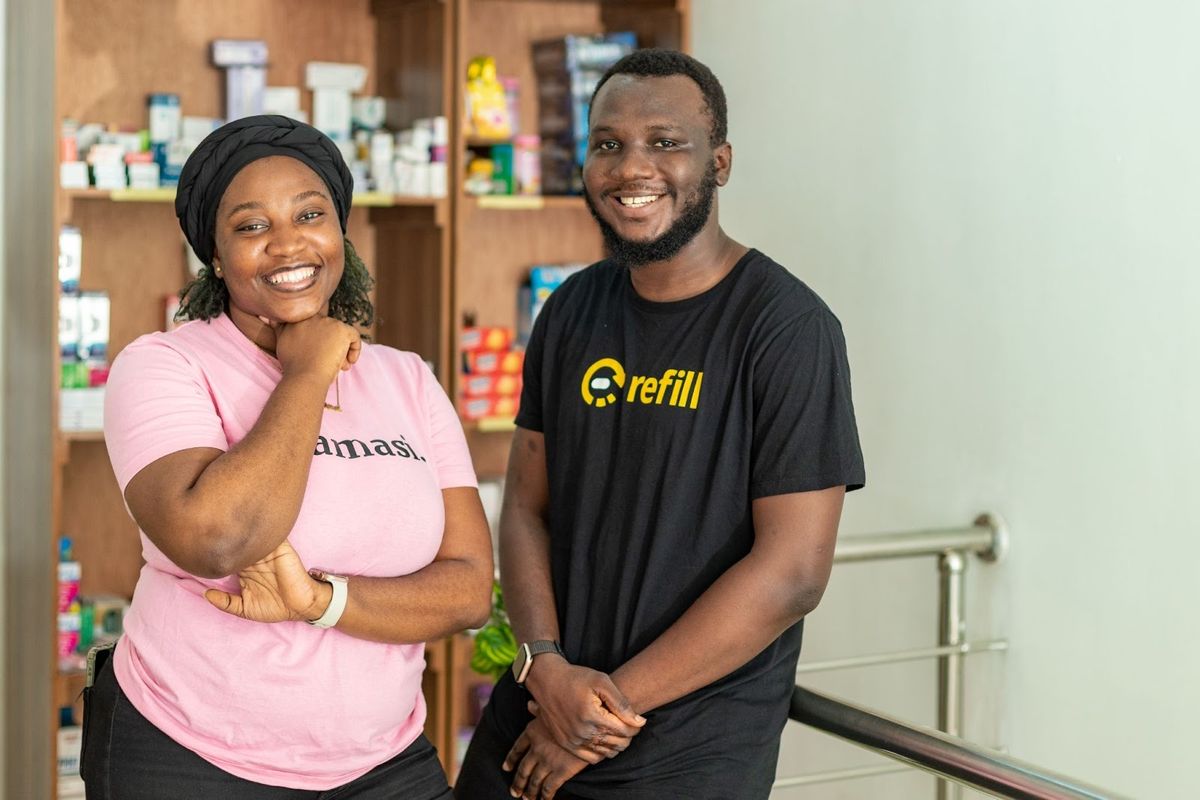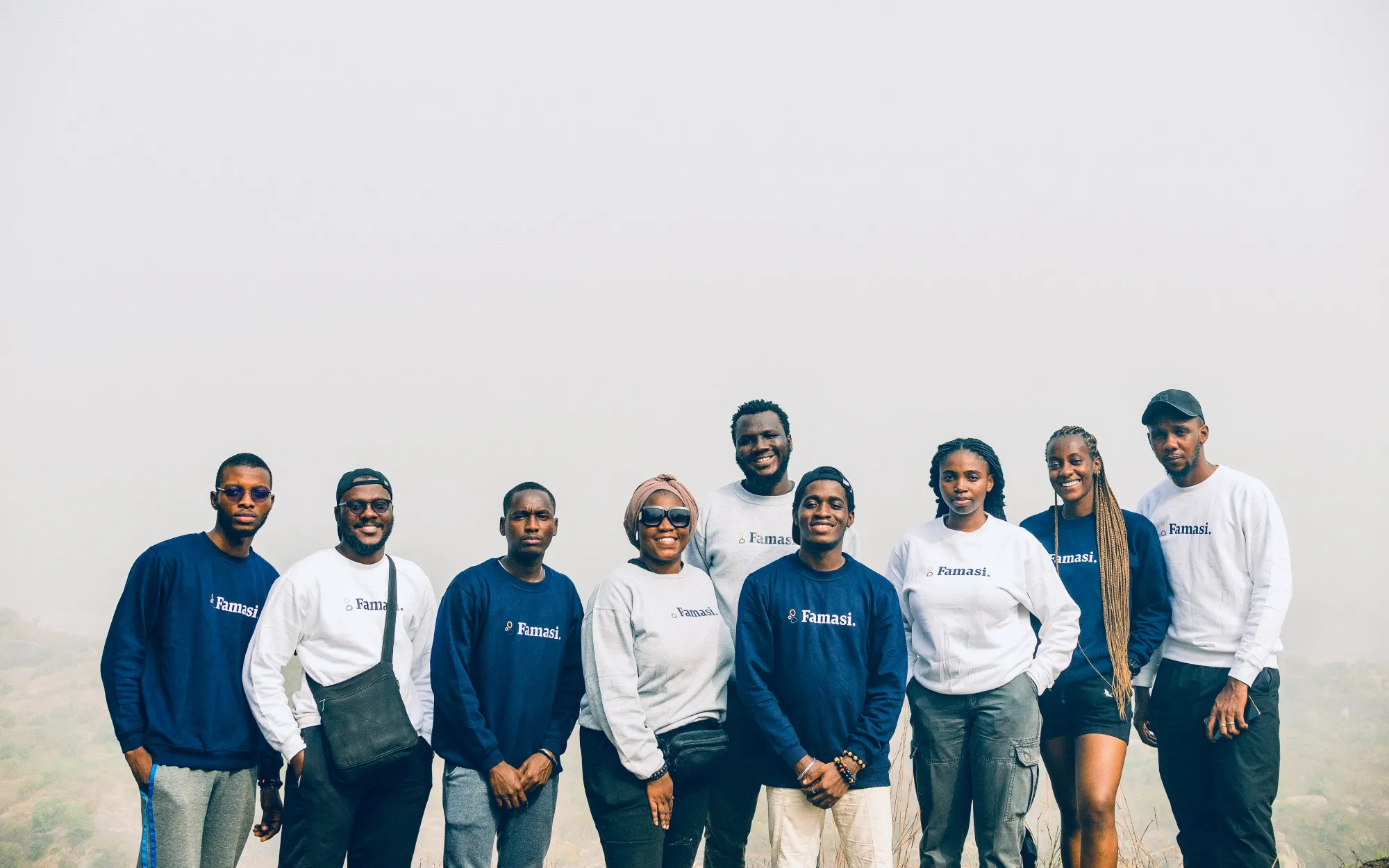Famasi secures pre-seed to build Africa's digital pharmacy infrastructure
Nigerian healthtech, Famasi Africa has secured an undisclosed pre-seed in a round led by Microtraction, to build the pharmacy infrastructure for African digital healthcare.

A year after she bagged a bachelor's degree in pharmacy at Nigeria's Obafemi Awolowo University, Adeola Ayoola interned at National Hospital Abuja in 2017, at this hospital, Adeola observed that "the hospital was always packed" with people coming to collect drugs refills such as antiretrovirals.
"It was overwhelming the system, over 120 people queued at the pharmacy every day for HIV medications," she told Benjamindada.com, "I did not have a solution [at the time], but I spotted the problem."
On another day, Ayoola and Umar Faruq Akinwunmi were on an Uber trip and they noticed that the driver was taking a local combination—chewing dried ginger and honey—which he said was healthy for him and other drivers since they didn't have time to visit the hospital. According to the driver, even if you visit the hospital, you will be required to buy the prescribed medications elsewhere.
Aside from this trip, Adeola and Umar—who read health policy and management at the University of Ibadan, noticed that these aforementioned issues were happening almost everywhere they went, making it an obvious issue with Nigeria's pharmaceutical infrastructure.
In September 2021, the duo launched Famasi, an online pharmacy that delivers medications as monthly or quarterly 'plans' to its customers. However, the health tech startup started to roll out non-chronic plans like menstrual care and sexual health during its beta.
"Some of our early customers wanted to try out Famasi, although they didn't have chronic illnesses, they had other conditions that require recurrent medications. So, we launched our menstrual care plan, built trust and started to add more personalised wellness plans," Adeola, Famasi co-founder and CEO, said. This seems to have paid off for the company as it claims to have hit gross profitability and grown revenue by 625% over the past year.
To deepen its efforts in building a digital infrastructure for the pharmaceutical infrastructure in Africa, Famasi has secured undisclosed seed funding in a round led by Microtraction with participation from Ore Ogundipe, GetEquity SPV, Isaac Ewaleifoh, Ibrahim Bello, Ayobami Olufadeji, Yusuf Abdulmalik, Adeline Okoh, Echezona Uzoma, Lanre Adelowo, Prosper Otemuyiwa & Nadayar Enegesi.
Later in August, the Lagos-based VC firm closed the first round of its $15 million Community Fund to invest in early-stage African startups.
While the health tech scene in Africa has seen an increase in investments since COVID, it still remains underfunded having received a meagre 3.19% of total investments raised in 2022, according to BD Funding Tracker.
"Access to quality healthcare and medicine is one of the major challenges for emerging markets. The team is ambitious in their mission to build exciting Products that redefine healthcare and embed multiple solutions, including finance, on one platform. We’re happy to enable Famasi to grow and be a key player in this ecosystem," Dayo Koleowo, Managing Partner at Microtraction, said in a statement shared with Benjamindada.com.

With this new investment, Famasi intends to onboard over 35,000 enrollees and grow its providers from 229 to 1000 by the end of 2023. "While in Beta, our product helped customers save up to five hours monthly and over ₦5 million in emergency bills while growing our revenue. We are on a mission to power 1 million refills by 2027 and the powerful combination of our latest partners to our amazing team gives us everything we need to personalise access to medications at scale, starting with our APIs," Umar Faruq, co-founder and Chief Product Officer, said.
The Nigeria-based Famasi Africa joins the very short list of health techs, including mPharma, OneHealth and myMedicines, with a promise to improve access to medications. However, Famasi Africa says it will not compete with them but instead focus on how to build the infrastructure for managing recurrent medications.
"When we started, we realised there was a huge infrastructure gap and we had to build ours from scratch. Access to medications is a problem that is bigger than one startup. However, we believe that with the proper infrastructure, we can offer more personalisation with our B2C offering while enabling more digital health solutions to not just be born, but thrive. With this funding, we are lucky to partner with investors who believe in this mission, including some of our early customers who connect deeply with the problem," Adeola added.






